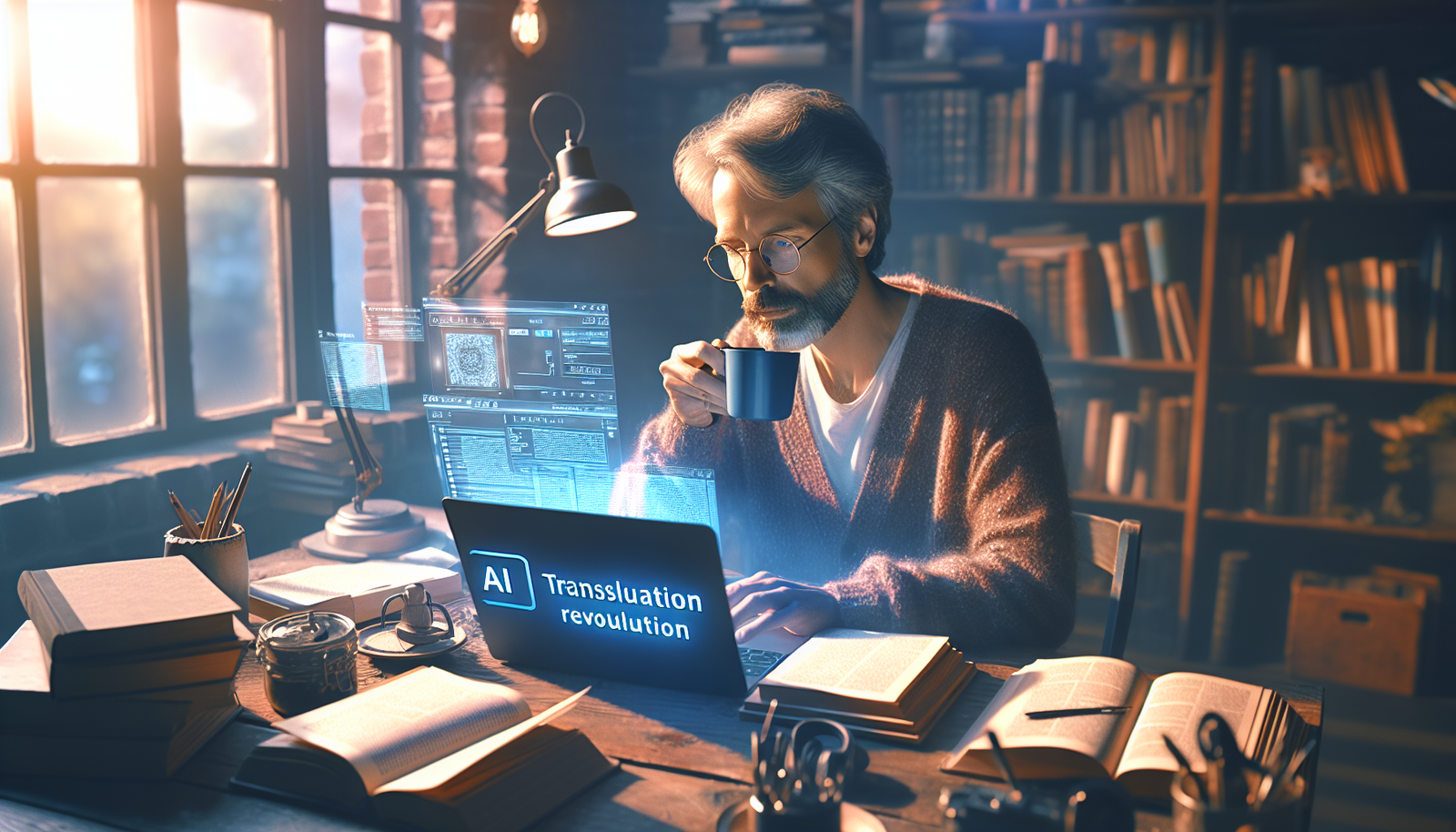The publishing industry is reinventing itself in response to the emergence of artificial intelligence, a phenomenon that is amplifying in the literary sector. A Dutch publisher is betting on a bold innovation: using AI to translate a limited number of works into English. This strategy raises major ethical and technical questions regarding the quality and fidelity of the translations. Authors fear that this initiative might lead to a devaluation of their art, while also prompting reflection on the fundamental role of the translator. A delicate balance between efficiency and authenticity shapes the future of publishing in a rapidly changing digital world.
Use of AI for Book Translation
A Dutch publisher, Veen Bosch & Keuning (VBK), has decided to experiment with the use of artificial intelligence for translating a limited number of works into English. This initiative, which is part of an experimental framework, focuses solely on titles of commercial fiction.
Selection Criteria for Works
The translation campaign will include fewer than ten titles, all in the realm of commercial fiction. According to Vanessa van Hofwegen, commercial director of VBK, “no literary titles will be used.” The works included in this project do not yet have English rights sold, which limits the risk of copyright violations.
Process and Implications of Publishing
A representative from VBK specified that each translated work will go through a phase of human editing. The authors involved must give their prior consent, which underscores the importance of the human element in the translation chain. The translations generated by AI will therefore be reviewed by editors before publication.
Criticism from Translators
This announcement is already provoking reactions in the translation community. Michele Hutchison, winner of the International Booker Prize, expressed her doubts about the quality of the translations. According to her, the use of AI for works considered “purely formal” is a derogatory assessment of literary creativity.
Similar concerns arise from David McKay, a literary translator. He emphasizes that removing the translator from the process increases the risk of producing incorrect and misleading translations. Such an approach could damage the reputation of authors and the perceived quality of translated books.
Surveys and Perspectives
A survey conducted by the Society of Authors (SoA) reveals that more than a third of translators have noticed a decrease in their professional opportunities due to the use of AI. Publishers like VBK, who choose this path, implicitly acknowledge the gaps in their methodology.
Potential Repercussions on Publishing
The potential incorporation of AI into the translation process could transform the editorial landscape. The reaction of consumers to artificially produced translations is still unknown. This technological change calls for a thorough reflection on translation standards in the digital age.
Frequently Asked Questions about the Use of AI by a Dutch Publisher to Translate Works into English
Why is a Dutch publisher using AI to translate books into English?
The publisher, Veen Bosch & Keuning, aims to improve the efficiency of the translation process for a limited number of commercial fiction titles.
What types of books will be translated by AI?
Only works of commercial fiction will be involved. No literary titles will be translated using this method.
How many titles will be translated using this technology?
The project focuses on a maximum of ten titles, all not subject to English translation rights.
Are there risks associated with using AI for translation?
Yes, critics point out that removing the human translator from the process may lead to inaccurate or misleading translations, thus affecting the quality of the works.
How can authors react to this initiative?
Authors whose books are affected by the project have been consulted and must give their permission for the use of AI in the translation process.
What is the stance of experts on AI and literary translation?
Many experts express concerns about the quality of translation and the potential impact on authors’ reputations due to the use of AI.
How does the publisher ensure the quality of AI-generated translations?
A human review process is planned, where a translator or an editor will review the text translated by AI before publication.
What are the long-term implications of using AI in publishing?
This practice could permanently alter the role of human translators and influence quality standards in the publishing sector.






